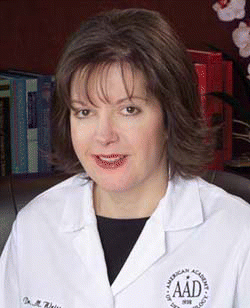Another facial plastic surgeon, Peter Hilger, MD, is also concerned about dangers to patients. If the primary motive is to make money, I am troubled about the quality of care, he said. Finances should not be the main motive. Dr. Hilger is in private practice in Edina, Minn., and is President of the American Academy of Facial and Plastic Reconstructive Surgeons (AAFPRS) and senior advisor to ABFPRS.
Explore This Issue
March 2007Other Reasons
In addition to the financial incentive, cosmetic procedures are fun and rewarding to perform, said Mary Lynn Moran, MD, a solo practitioner in Woodside, Calif., who is a board member of both ABFPRS and AAFPRS. It’s a ‘feel-good’ kind of field, and the financial return can be greater than for other office-based activities, she said.
Dr. Moran, a member of the California Medical Board, commented that she is often surprised by which physicians are willing to cross the line and offer procedures for which they are not certified. The reality is that MDs can offer any procedure they want until they make a mistake and get caught, she said.
Another View
Cosmetic procedures represent a growing market. Many physicians have seen their income reduced by reimbursement and competition, and the cost of insuring their medical practices is high. Cosmetic procedures can expand their practice into a cash business. These procedures, like fillers and Botox, are easy to learn, although not necessarily to do well, and don’t require extensive training, said Ira Papel, MD, Vice President of the ABFPRS and Immediate Past President of AAFPRS.
Dr. Papel was more sanguine than other interviewees about non-core physicians performing superficial cosmetic procedures. Many dermatologists and facial plastic surgeons are against this. I’m not sure I’m against fully trained medical doctors wanting to offer low-risk procedures that don’t take a lot of training. Why begrudge fellow physicians the income, as long as the procedures are done in a safe and honest way? he said. On the other hand, he said that surgical procedures should be performed only by board-certified surgeons.
Dangers of Superficial Procedures
Superficial procedures are not completely risk-free, Dr. Hilger commented. He treated a patient who developed a hematoma when a neurologist injected Botox into the forehead. I had to drain half an ounce of blood from that patient’s forehead, he noted. Also, he has seen patients with skin sloughs due to injections that killed the blood supply when fillers were injected by non-core physicians.

Leave a Reply